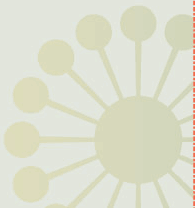AND THEN
THERE IS HOPE J. R. R. Tolkien has written the great myth for our time
and has captured the essential truth of our generation. Near
the end of his epic trilogy, The Lord of the Rings, as King Aragorn
is preparing to die, he utters his final words to Arwen, his
queen: "In sorrow I must go, but not in despair. Behold,
we are not bound forever to the circles of the world, and beyond
them is more than memory. Farewell!" Once again we have encountered a manifestation of evil in the world. We add the massacre at Virginia Tech to the growing list of mass shootings and bombings in this country: 9-11, Oklahoma City, Columbine, the Amish school; and to the international conflagrations in Iraq, Afghanistan, Darfur, and elsewhere. The characteristic of tragedy that distinguishes it from melodrama, according to playwright Jean Anouilh, is its inevitability. You know that it is coming. There is no suspense, no apprehension, no hope. You only know that you can do nothing about it. Like Jesus' inevitable journey to the cross, it looms before us, and though we find ourselves in countless Gethsemanes offering our prayers that this should never happen again, it most assuredly will. We look for some sense of meaning in life's tragedies and continually ask of God, "Why? Why does this need to happen?" It is more poignant when we hear of the hopes and dreams of those who have died in the Blacksburg shootings, of incomplete lives and futures unfulfilled, of shattered relationships and the blessings that these men and women once brought to others, of families fragmented by grief and sorrow that may never heal. Our hearts go out to them as we envelop them in our love, including the Cho family who have not only lost a son, but must also live with the anguish that his mental disease was the cause of so much sorrow and pain. Liviu Lebrescu was a Romanian Jew who had survived the Holocaust, Nazi internment, and persecution by the Communists. He died saving the lives of many of his students. There are no accidents in this life. Call it karma, call it destiny. For Christians, it is the light of heaven that guides us on life's journey. The great medieval mystic Meister Eckhart said: "Truly, it is in the darkness that one finds the light, so when we are in sorrow, then this light is nearest of all to us." We are comforted that we can move forward in hope. If we can believe that God is in control of this world, that our destiny is yet to be played out, that there is purpose to our suffering, that there are no accidents, that the universe is unfolding as it should, then we can walk in the light of God, filled with hope. There is always hope. And there is the grace of God that redeems this present darkness.
|
|
